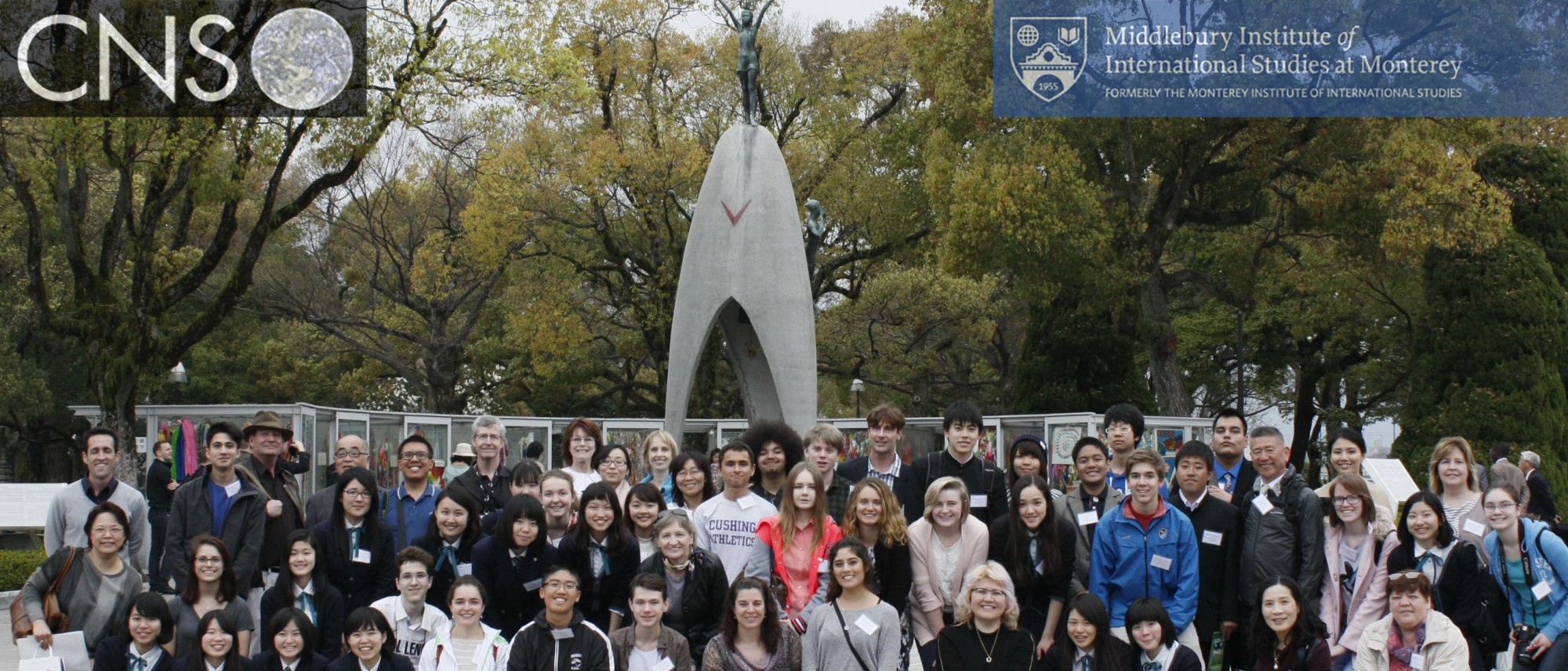Kokoro Tanaka
Kwassui High School
Through my participation in the Critical Issues Forum program, I have learned so many important things. Some experiences were difficult, but these experiences definitely helped me to grow, and learn more about the importance of teamwork, international cooperation, and cross-cultural communications.
While we were preparing for the CIF conference that was hosted by our school in Nagasaki, there were occasions that I found myself in situations where some of my classmates had different opinions, and we had several debates. This situation made me contemplate deeply on the relationship between peace in a broader context such as nuclear disarmament, and peace on a personal level such as enjoying friendship.
When we had difficulties making progress toward the CIF spring conference, I was able to receive tremendous support from many people. Particularly, I am very grateful to Mr. Kusano, a teacher and advisor of Kwassui High School Peace Studies Club, and Mr. Hirao, my homeroom teacher for their helpful advice, guidance, and encouragement. I also received warm support from my classmates and family members when I felt I was stuck. Thanks to the support of many people, I was able to overcome a number of challenges, and contributed to the successful CIF spring conference that welcomed students from many different cities in Japan, the United States, and Russia.
Since this CIF conference was the first one to be held in Nagasaki, my hometown, all of us worked very hard to have successful outcome. The significance of hosting such a conference in Nagasaki, which experienced the atomic bomb, will have a long-term impact. I learned the importance of cooperation and team work through this experience.
Dr. Lassina Zerbo, CTBTO Executive Secretary who gave a keynote address as well as participated in the panel discussion, emphasized the importance of international cooperation to achieve nuclear disarmament, particularly to bring CTBT into force for a safer and more peaceful world. His words taught me that I can apply this concept of international cooperation to solve my personal challenges. No one can solve the problem alone. We need to have cooperation to accomplish shared goals.
My daily personal struggles and nuclear dangers seemed to be very far apart. But through this experience, I realized that cooperation is the key to solve any problem, and to achieve any goal, and this principle applies to both personal and world challenges.
It was also necessary to overcome language barriers because the CIF is conducted in English. In order for all the participants, including non-native speakers of English, to have a better understanding of the CTBT and to be able to promote early entry into force of the CTBT, it is important to be able to communicate in English.
In the question and answer discussion session, some Japanese high school students actively expressed their opinions in English. I was also encouraged by both American and Russian students who actively listened to all the presentations, asked questions, and expressed their opinions in a very respectful manner. I was so inspired by all of these students who participated in the conference.
At Kwassui High School I am in the Special English Course that gives students more opportunities to study English than other courses. I was very inspired to study English harder to improve my language skills so that I can express my opinions in a better way without hesitation.
I also learned the complicated process of nuclear disarmament. Dr. Zerbo mentioned that sometimes, we need to compromise to achieve bigger goals in the process. Nuclear abolition is a daunting task, sometimes seemingly impossible. Therefore, we have to study and accumulate experience so that we can work more effectively to accomplish goals.
Another important thing I learned is that it is essential to continue dialogue, especially with someone who has different opinions. For that purpose, social media can be an effective tool. As young students, we are active in using social media, and by using such tools, we can communicate with more and more people to convey the importance of nuclear nonproliferation and disarmament.
The CIF project gave me and many of my classmates a great opportunity to learn about nuclear disarmament and nonproliferation, and what we, the youth, can do. Now, after the CIF, I am more determined than before to expand the network of young people who promote disarmament to achieve the goal of a world free of nuclear weapons. There are still so many people, especially young generations, who do not know nuclear weapons and the risks they pose to us. I would like to share what I have learned through the CIF with as many friends as possible. Through the friendships I have established by the CIF project, I would like to reach out to more people, and create an environment to work for nuclear abolition.
I am in my final year of high school. After I graduate from Kwassui high school where I learned the importance of peace, based on all the experience I have accumulated, including this amazing opportunity of the Critical Issues Forum, I will continue to work for peace and disarmament.
I am planning to study international affairs at university, and I would like to contribute to nuclear disarmament. My dream is to work at an international organization, such as the United Nations so that I can have a solid role to promote nuclear disarmament. My participation in the CIF program pushed me one step closer to that goal. By exchanging opinions with students from the United States regarding nuclear disarmament, I realized that it is possible to have a safer and more peaceful world without nuclear weapons if we, the youth, collaborate toward the shared goals. I am so happy that I was able to participate in the CIF program, and I am so grateful for this opportunity.”



